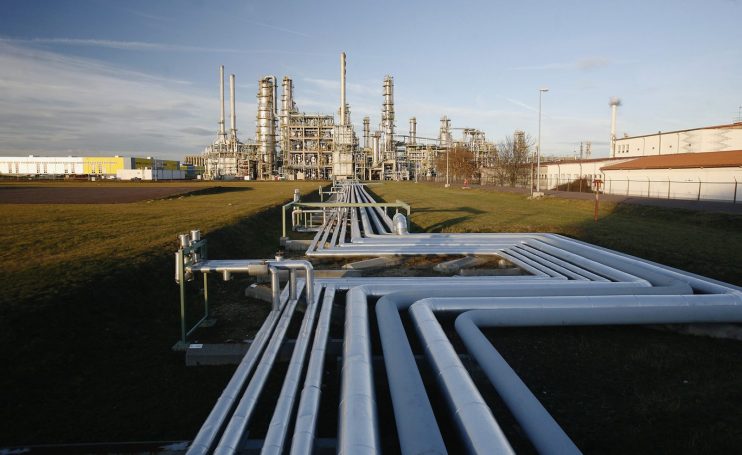Oil prices plummet as investors pin hopes on Russia-Ukraine talks

Oil prices nosedived on both major benchmarks t oday following renewed peace talks between Ukraine and Russia.
Momentum from sustained rallies – which saw prices peak at 14 year highs of $139 per barrel earlier this month – now seems to be faltering as supply shortage fears ease.
Brent Crude has dipped 7.02 per cent to $104.80 per barrel while WTI Crude has plunged 7.45 per cent to $101.20 – although prices remain elevated above the $100 milestone.
After 19 days of conflict and mostly fruitless diplomatic efforts, there has been the suggestion of some progress today even Russia ramps up attacks on the country.
For instance, temporary ceasefires finally agreed and used, while Ukraine’s government has revealed Russia has “stopped using ultimatums”, meaning there could “be results in the coming days”.
Commerzbank analyst Carsten Fritsch suggested previous highs were unsustainable amid continued diplomacy efforts.
He explained: “Last week had already seen the two prices fall sharply as compared with their previous highs. This is due to positive signs from the talks conducted at the weekend by Russian and Ukrainian representatives, which are giving rise to hopes of rapprochement. By contrast, the nuclear negotiations with Iran have suffered a setback and were suspended on Friday.”
Both contracts have surged since Russia’s invasion of Ukraine last month, and are up roughly 40 per cent since the start of the year.
Meanwhile, China has reported a surge in COVID-19 cases this week, as the highly transmissible Omicron variant spreads to more cities, triggering outbreaks from Shanghai to Shenzhen.
Its daily new case load figures have hit two-year highs, with 1,437 new confirmed coronavirus cases reported on March 13.
China is the world’s largest crude oil importer and second largest consumer after the US – and the prospect of reduced demand is further weighing down prices after sustained market rallies.
Furthermore, Europe’s decision not join the US and UK in rolling out energy sanctions targeting coal, oil and gas has also eased fears of blackouts across the continent this winter.
Despite sanctions on Russian oil, the country output of oil and gas condensate has risen to 11.12 million barrels per day (bpd) so far in March, according to Reuters – with the Russia weighing up a potential oil deal with India.
Commenting on tailwinds that could reignite the oil market, Fritsch noted the stalled revival of the 2015 US-Iran deal.
He explained: “Until its invasion of Ukraine, Russia was one of the supporters of an agreement with Iran. This has clearly changed now. Russia appears unwilling to let Iran return to the oil market at its expense. This could prove to be a foretaste of the difficult meeting facing OPEC+ at the end of the month. There too, Russia could block any greater expansion of oil production even if this were supported by a majority of the extended cartel’s members.”